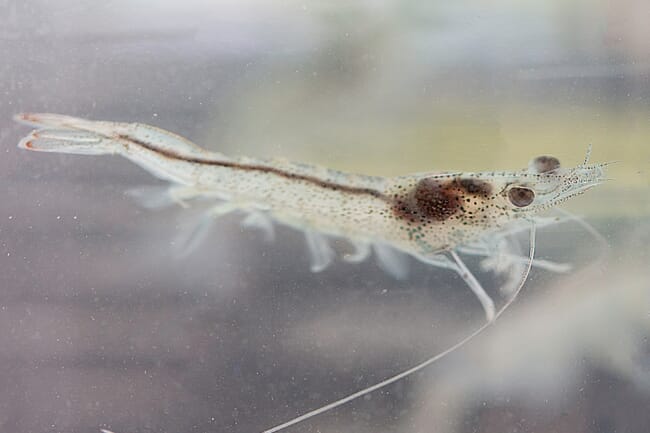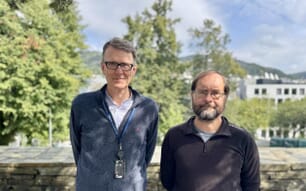Shrimp and prawns are seen as promising candidates to be cultured in RAS, but the technology is new and requires better understanding and refinement to reach its full potential.
Understanding the behaviour of cultured animals is key to optimising production, assisting with best husbandry practise and maximising welfare. The PhD will involve applying new video and acoustic technological approaches to improve understanding of whiteleg shrimp (Litopenaeus vannamei).

The project will involve using stereo videography to observe 3D swimming activity of prawns in tanks, and document aspects of group behaviour including nearest neighbour analysis, for example as has been done for Antarctic krill (Murphy et al. 2019). This will inform optimisation of stocking densities.
Crustaceans have not traditionally been thought of as ‘vocal’ animals, but there is a growing awareness of the importance of sound to them (Coquereau et al. 2016) and it may be possible to move towards on-demand feeding if there are auditory cues to hunger.
Sequencing of the gut microbiota under different culture conditions will provide an opportunity to interrogate linkages to the observed animal behaviours (Soares et al. 2019). This raises the prospect of beneficially influencing the shrimp phenotype through manipulating the microbiota, such as by probiotic supplementation or feed composition. The video and acoustic sampling and microbiota description will deliver very large volumes of data. We will explore application of cutting-edge computer vision and AI techniques to extract patterns from data and maximise the inferences that can be made from the behavioural observations.
All data together should lead to development of improved methods for RAS cultivation, that in turn will deliver higher yields from more efficient, high-welfare aquaculture for a green and prosperous bioeconomy.
How to apply
Applications are open until 16 December and instructions can be found on the EASTBIO website- http://www.eastscotbiodtp.ac.uk/how-apply-0




